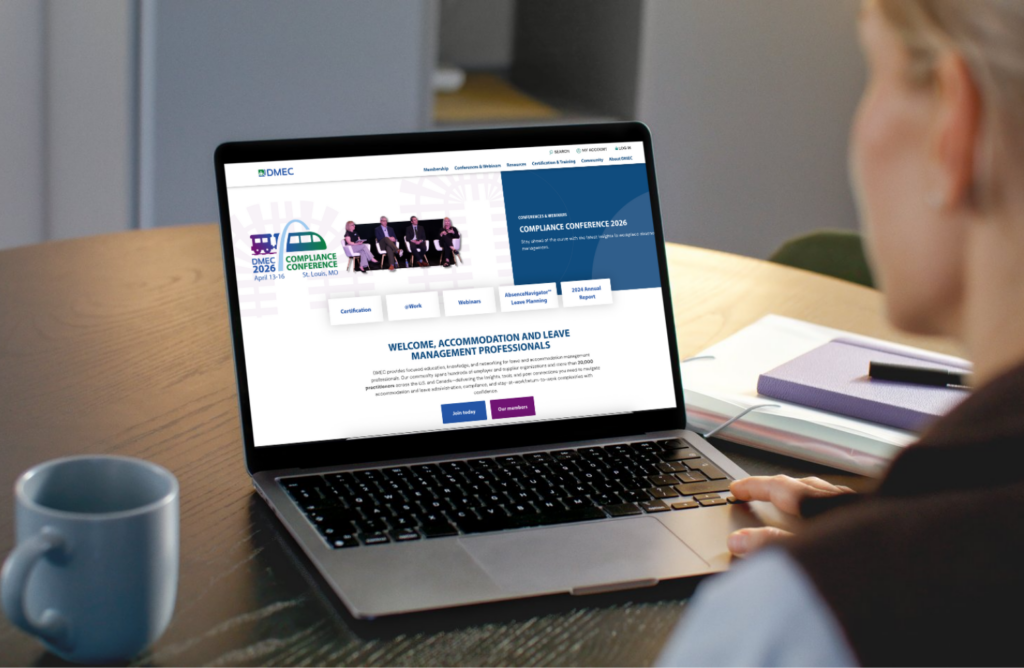
Determining a “reasonable accommodation” is more complicated than ever, due to ongoing concerns about COVID-19, long COVID, and a dizzying number of state-specific requirements for COVID-19 vaccine accommodations and supplemental paid sick leave. We must brace for ongoing COVID conversations — considering millions of people are affected by long COVID which may be keeping more than one million employees out of work.2
This alone would be an issue for employers but with hiring and retention issues — which have been attributed to the Great Resignation, Reprioritization, or whatever term you prefer — it is a daunting statistic. The condition, which causes cognitive impairment or brain fog, muscle pain, fatigue, and other debilitating symptoms can last for months, and affects people of all ages. It also comes in many forms, which makes it difficult to pinpoint a specific disability, and because it is not visible, it could result in more contested cases.
While frenetic work is underway to gain a better understanding of long COVID and its effects, employers are once again caught in a situation that is evolving in terms of what we understand and how we should respond. Several groups are advocating for a national plan to address long COVID, and the National Institutes of Health is granting $1.15 billion in funding to research its prolonged health consequences, which are mitigated by vaccines. A recent study3 shows vaccinated people, who experienced breakthrough infections, were less likely to develop Long COVID Syndrome or post-acute sequelae of SARS-CoV-2.
All in all, we have a lot to learn though we seem to be heading in the right direction.
Are We There Yet?
While concern about long COVID dominates conversations among integrated absence management (IAM) professionals, I wonder if we have reached a tipping point. Malcolm Gladwell, journalist and author, describes the tipping point as a “magic moment when an idea, trend, or social behavior crosses a threshold, tips, and spreads like wildfire” in his book by the same name.4
So, are we there yet?
Data from the 2021 DMEC Employer Leave Management Survey5 show that IAM professionals have kept pace with demand for ADA accommodations relating to COVID, the focus for our first episode of Absence Management Perspectives: A DMEC Podcast with Bryon Bass, senior vice president workforce absence for Sedgwick and DMEC Executive Advisory Board member; and DeShawna Manley, a national benefits director for PriceWaterhouseCoopers and a DMEC Employer Advisory Council member.
They shared examples of how IAM professionals have kept pace during this whirlwind time as well as data that helps put things into perspective in terms of ADA accommodation request volume. “If COVID taught us one thing, it’s that there are always other ways to do things,” Manley said. “It opened people up to doing things differently.”
Agility will be essential to finding a solution for managing these absences — a topic we broached during the 2022 DMEC ADA/FMLA Compliance Conference in March, and one we will explore in depth with thought leaders during the 2022 DMEC Annual Conference, Aug. 1-4, in Denver.
And while COVID continues to be ever-present, I do think we’ve reached a tipping point as it becomes part of a bigger, disease management conversation. The magic moment in this case is realizing the value of processes, which provide guardrails for managers regardless of the scenario. And as those scenarios continue to morph, now is an ideal time to reassess policies and procedures and make sure employers have what they need to address all types of accommodation requests.
Compliance
While it’s good news that IAM professionals have kept pace with policies to address COVID-19 mandates announced and suspended, rescinded, and reintroduced,4 we must continue to support their work considering its high stakes and far-reaching effects.
While courts have so far refused to grant many religious accommodation claims, employers should examine these cases closely and also ask, can we be held liable for adverse effects from required vaccines?5
Savvy absence management leaders will consider how the cases could (or should) influence policies, processes, and communication to ensure that processes for vetting all accommodation requests are clear. It’s a critical as the pandemic illustrated vulnerabilities in our systems.
To make sure you’re covered, investigate how frequently your organization reviews its policies, which departments are involved, and the frequency of staff training. The DMEC ADA Accommodations Process Microcredential Course provides practical tips and tools, including a reminder of valuable resources, such as a list of internal stakeholders, to keep everyone in the loop. Revisiting and reviewing this information will help protect the organization considering that a policy is only as strong as a team’s weakest link.
Not a One-and-Done
I may sound like a shampoo label (lather, rinse, repeat) when it comes to ADA education and training, but it’s a frequently overlooked secret to success.
At the end of the day, people implement processes, which allows us to provide a personal touch when employees need it most. It also opens the door for human error. Most employers use manual processes to manage leaves,5 and many IAM professionals handle accommodation requests along with other responsibilities, which makes education and training two of your most valuable tools to ensure and sustain compliance.
Costly compliance errors are frequently attributed to misunderstandings, lack of knowledge, and a misinterpretation of information. To avoid those potholes, ensure ADA awareness as well as true understanding and team access to resources. Lather, rinse, repeat.
References
- Health and Human Services. Guidance on “Long COVID” as a Disability Under the ADA, Section 504, and Section 1557. Undated. Retrieved from https://www.hhs.gov/civil-rights/for-providers/civil-rights-covid19/guidance-long-covid-disability/index.html
- Government Accountability Office. Science & Tech Spotlight: Long COVID. March 2, 2022. Retrieved from https://www.gao.gov/products/gao-22-105666
- National Institutes of Health. Breakthrough Infections in Vaccinated People Less Likely to Cause ‘Long COVID’. Sept. 14, 2021. Retrieved from https://directorsblog.nih.gov/?s=long+covid
- Gladwell, M. 2000. The Tipping Point: How Little Things Can Make a Big Difference. Little Brown.
- Webinar Recording: Results of the 11th Annual Leave Management Survey. March 3, 2022. Retrieved from http://dmec.org/2022/03/02/webinar-recording-results-of-the-11th-annual-leave-management-survey/











